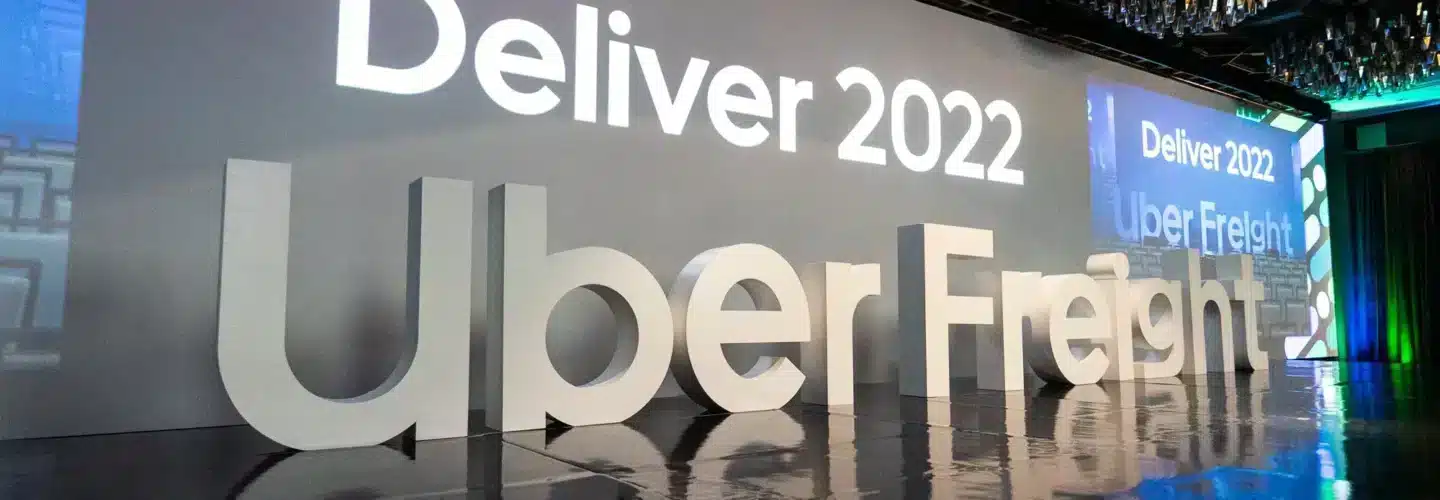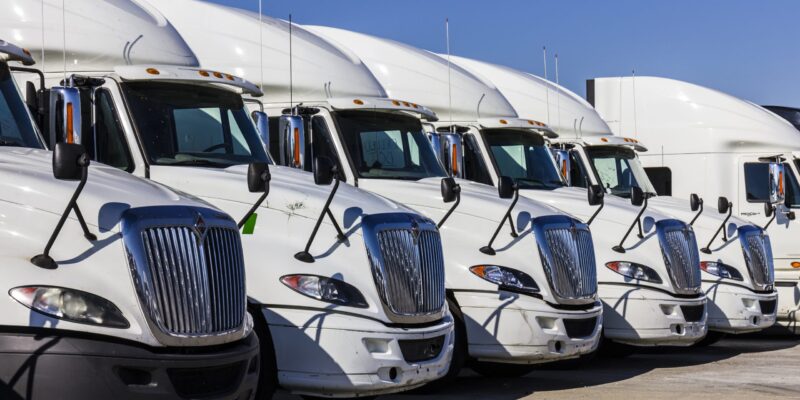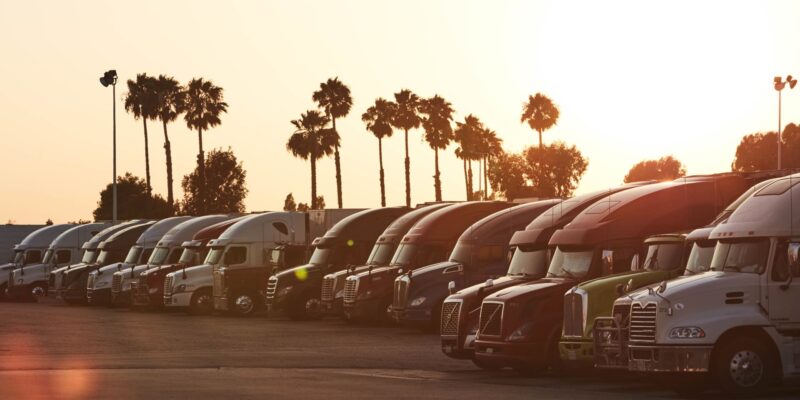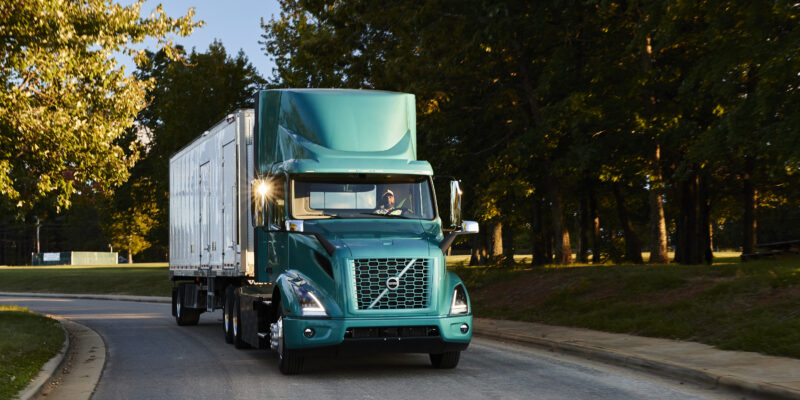Deliver 2022 recap: Reimagining the future of logistics

Last week we hosted Deliver 2022, our annual conference that brought three days of engagement to San Antonio, Texas, providing shippers and our customers with insights from some of the most notable freight and logistics experts in the industry.
More than 500 people attended the conference at La Cantera Resort & Spa, which featured keynotes and discussions highlighting the state of the freight market after more than two years of volatility—and how shippers can evolve their logistics to better prepare their businesses for future market disruption and build more dynamic supply chain networks overall.
Here are a few highlights from this year’s event:
Powering the future of logistics
Attendees heard firsthand from Head of Uber Freight, Lior Ron about the vision to change logistics for the better. Ron’s opening keynote speech highlighted Uber Freight and Transplace’s mission to invest in innovation and further evolve their joint, scalable technology platform that powers shippers’ supply chains.
“The logistics industry was built for a world we no longer live in and it needs to adapt to a fast-changing environment. It’s not about predicting what’s next, but equipping [shippers] with tools that allow [shippers] to deal with volatility,” said Ron. “Transplace and Uber Freight merging will transform logistics to help shippers be nimble and ready to adapt to any supply chain challenge. It will be a logistics platform and partner built to help you stay ahead of a rapidly evolving world.”
Ron also stressed the importance of shippers and carriers working together—connected through a digital freight network—to build a better future for the industry. And a mission statement set the tone for the rest of the event: Our goal is to reimagine the way goods move to help communities thrive.

Technology solutions grounded in transparency, visibility and impact
Steve Barber, Senior Vice President of Platform at Transplace, and Raj Subbiah, Head of Product at Uber Freight, highlighted how the company will help shippers shift from a reactive to a proactive logistics strategy by using technology.
To provide more transparency to shippers, Uber Freight’s marketplace offers on-the-spot access to capacity and exact carrier costs; the ability to fully automate carrier sourcing or manually control the process; and procurement tools that use shippers’ historical bid data and carrier performance to help customers expand their carrier network and plan for different scenarios.
Technology will also provide more visibility by allowing shippers to personalize and manage dashboards that show shipment status and risks; real-time tracking of multiple shipment modes using APIs; and access to carrier feedback on facilities, which shippers can use to make necessary changes.
There’s a clear vision for the impact this technology will have on the future of freight. Scaling these solutions will allow more than 100 countries to use any shipping mode of their choice, from LTL to autonomous trucks to ocean and air. And Uber Freight has set goals to cut carbon emissions among shippers and carriers, specifically by reducing deadhead miles by 25% and reducing truck idling time by more than 40%.
Taking action on the future of logistics
There are many steps shippers can take—particularly around sustainability, technology, data and scenario planning—to adapt their logistics strategies for the future, as was spotlighted in a number of Deliver mainstage and panel sessions.
Creating more sustainable supply chains is critical to reduce freight’s environmental impact. Uber Freight Head of Sustainability, Illina Frankiv in conversation with experts from multiple Fortune 500 shippers highlighted why sustainability is a core component of their transportation strategies, their short-term and long-term goals to reduce carbon emissions and steps all companies can take to measure their environmental impact and efficiently implement more eco-friendly practices.
The importance of including new technologies and automation to complement manual shipping operations was also a major throughline at the conference. The evolution of autonomous trucks, in particular, was a key talking point.
Olivia Hu, Head of Autonomous Trucking Strategy and Business Development at Uber Freight; Joanna Buttler, Director of the Autonomous Vehicle Program at Daimler Trucks North America; and Charlie Jatt, Head of Commercialization at Waymo, discussed the opportunity to transform transportation and logistics with the introduction of autonomous trucks. Joanna and Charlie highlighted how autonomous trucks could improve transportation capacity, safety and efficiency, as well as an industry roadmap for eventually seeing a rollout of autonomous trucks at scale that will operate side by side with human drivers. To support the vision, Deliver attendees also had a chance to see the technology in action—an autonomous Waymo truck drove around the event venue during the conference’s second day.

Technology and data innovations to power shipper business operations and supply chain decisions were also captured during Deliver’s interactive breakout sessions. During a session spotlighting startups, Ian White, CEO of Koffie Insurance, and Elliot O’Connor, founder and CEO Frontier, discussed how shippers can effectively use technology in the hiring, insurance and drayage sectors of their business. Meanwhile, experts from Uber Freight and other Fortune 500 companies offered actionable steps for shippers to improve how they use data to inform logistics decisions.
Deliver’s ongoing theme of preparing logistics for the future naturally set the stage for the conference’s Q4 outlook panel. Chris Caplice, Senior Research Scientist at MIT; Mazen Danaf, Senior Economist and Applied Scientist at Uber Freight; Ben Cubitt, Senior Vice President of Consulting at Transplace; and Matthew Harding, Senior Vice President of Data Science at Transplace, touched on important insights for shippers such as how to navigate rate fluctuations, capacity challenges and procurement heading into a potentially soft market in the first half of 2023, and a tight market in the latter half.
Standout keynotes and giving back
Along with hearing from industry pros, Deliver attendees also had the opportunity to experience moving, exciting and informative keynotes from notable speakers including David Robinson, former player for the San Antonio Spurs, who discussed the highs and lows of his basketball career, and the importance of giving back to local communities in need; supply chain professional and Managing Director at EY John Polowczyk, who provided a firsthand account of how he came to lead the White House supply chain task force at the onset of the COVID-19 pandemic; and CNBC economist Marci Rossell, who offered insight on the most important long-term issues for the economy that should be top of mind.

Deliver 2022 was more than just a gathering about the future of freight and logistics, however—it was also about giving back. This year, we partnered with Feeding America and the San Antonio Food Bank to raise money and pack kid-friendly meals for families in need. We’re thrilled to announce that we packed nearly 2,000 meals and raised $75,000!
We’re grateful to all of the shippers, customers and speakers that made it to Deliver this year. While there will always be challenges and uncertainty, it’s clear that our industry is dedicated to building new strategies that will impact the future of freight for the better. Thank you for attending Deliver 2022, and we look forward to seeing you at next year’s event!



